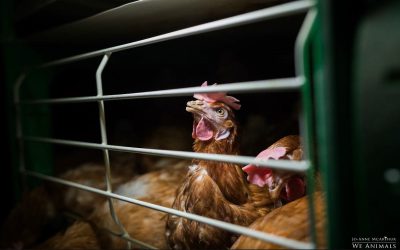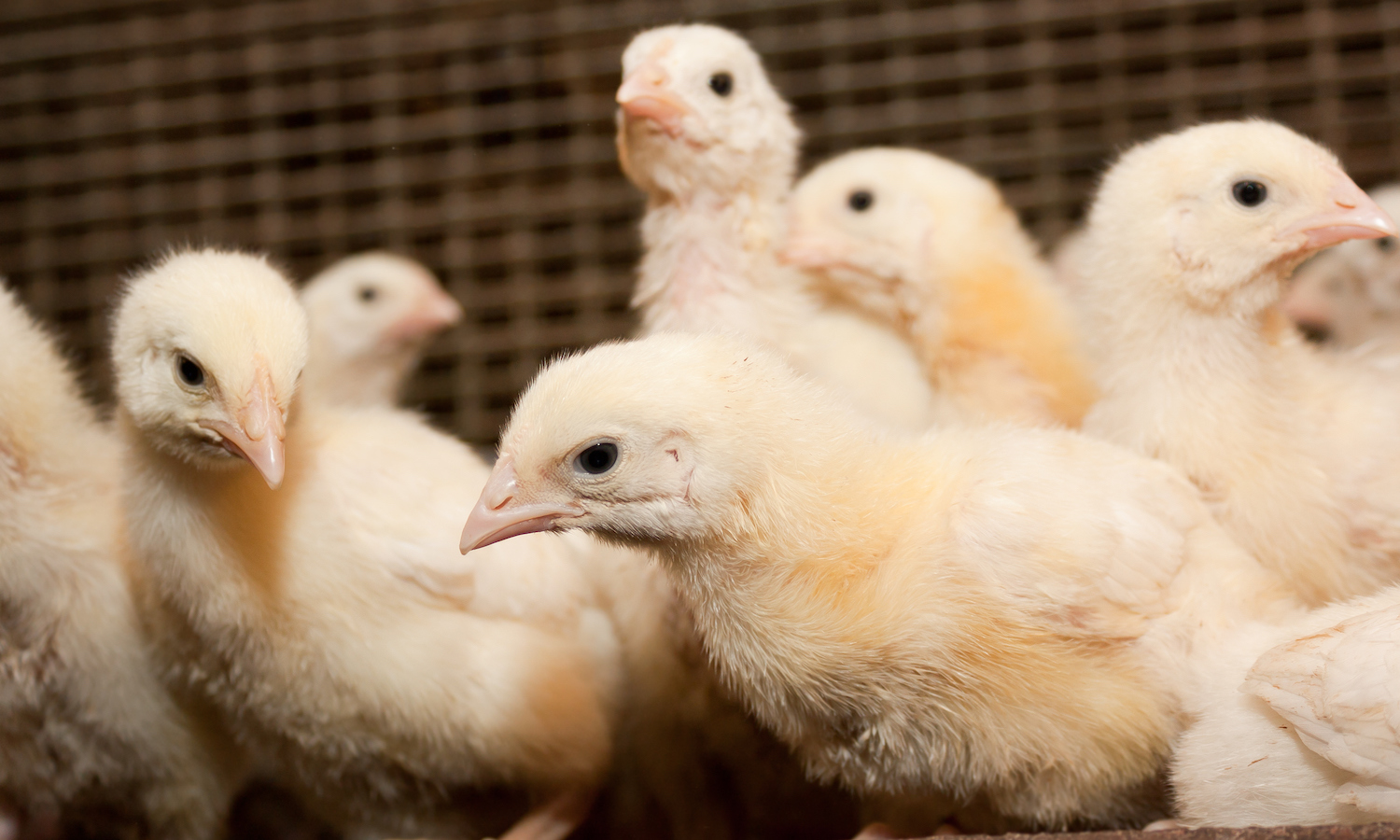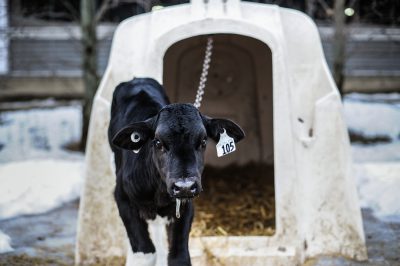Is there such a thing as farmed animal rights? The United States is a land of laws. So, you would expect that there is a robust set of laws and regulations governing the raising of farmed animals. Sadly, that’s not the case. And, while things are getting better, mainly due to pressure from voters and consumers, there still is no federal law offering even the most minimal protections to farmed animals during the 99% of the time they are alive and being raised for food.
Federal Laws
Most farmed animals in the U.S. are raised in concentrated animal feeding operations (CAFOs), giant factories that ignore the animals’ most basic needs. CAFOs are sometimes called “factory farms,” and they don’t look or operate anything like traditional small family farms.
When animals reach market weight, they are transported, usually by truck, to the slaughterhouse. The federal 28 Hour Law specifies that someone transporting animals across state lines may not confine the animals for more than 28 hours. At that point, the animals must be unloaded from the vehicle and allowed to rest. But, this law does not apply to farmed animals while they are being raised in CAFOs.
The Humane Slaughter Act provides minimal protections for animals undergoing slaughter, but it too, does not apply to farmed animals while they are living in the CAFOs.
The federal Animal Welfare Act specifically excludes farmed animals from its protections.
So, back to the original point: there is no federal law that provides protections to farmed animals while they are being raised for food. There are no federal farmed animal rights and protections.
State Laws
Most state anti-cruelty laws specifically exempt farmed animals and/or the standard and customary husbandry practices the industry uses, such as intensive confinement, dehorning, tail-docking, debeaking, castration (all done without anesthesia or analgesics), forced molting of laying hens, and other cruel practices.
The “farmed animal” exemptions to state animal cruelty laws are not accidental. They are the product of the massive and powerful American agriculture industry, which controls legislatures at the federal and state levels, and exercises almost total control in the failure to set standards for the humane treatment of farmed animals.
people power helps protect animals
Here’s the good news: Twenty-four U.S. states have a process called “voter initiative”. This means that voters can directly pass legislation, without going to the state legislature. Since 2002, and through the hard work of animal protection groups, voter initiatives have outlawed cruel practices in certain states. Here’s a rundown of those voter-initiated laws:
- 2002: Florida outlawed gestation crates for sows (female pigs)
- 2004: California outlawed the production and sale of foie gras, which is made by painfully force-feeding ducks or geese
- 2006: Arizona outlawed gestation crates for sows and “veal” crates
- 2007: Oregon outlawed gestation crates for sows
- 2008: California outlawed battery cages for egg-laying hens, gestation crates for sows, and “veal” crates (Prop 2)
- 2008: Colorado outlawed gestation crates for sows
- 2009: California outlawed cattle tail-docking
- 2009: Michigan outlawed gestation crates for sows and “veal” crates
- 2009: Maine outlawed gestation crates for sows
- 2010: California outlawed the sale of whole eggs from caged hens
- Ohio Farm Bureau (by regulation) outlawed gestation and “veal” crates and placed a moratorium on the construction of new battery cage facilities for egg laying hens
- 2012: Rhode Island outlawed gestation crates for sows, crates for calves being raised for veal, and cattle tail-docking
- 2018: California Prop 12:
– Eggs produced and sold in California must come from hens who are not in cages, can move around and spread their wings, and have enrichments, such as perches, nesting boxes, and more
– Bans the sale of pork from factories using gestation crates for sows
– Bans the sale of veal from facilities that house the calves in crates
– Covers liquid eggs (1/3 of all egg production), protecting millions more birds
– Adds needed enforcement mechanisms
These initiatives have provided a new start for the movement to protect farmed animals, but billions of farmed animals are in states that do not have the initiative process, and we still have a lot of work to do.
What you can do
- Learn more about the problem. Here are websites that cover the topic: Animal Welfare Institute, and Animal Legal Defense Fund.
- Share information with your friends, family and co-workers about how we can all help protect farmed animals.
- Contact your state and federal representatives. Tell them that you want them to introduce legislation that will offer protections to animals being raised for food.
- Make change with your wallet. Boycott the CAFO food production system. Even more impactful, go vegan for life: yours, the animals’, and the planet!
By Joyce Tischler, Professor of Practice, Animal Law, Center for Animal Law Studies at Lewis & Clark Law School





